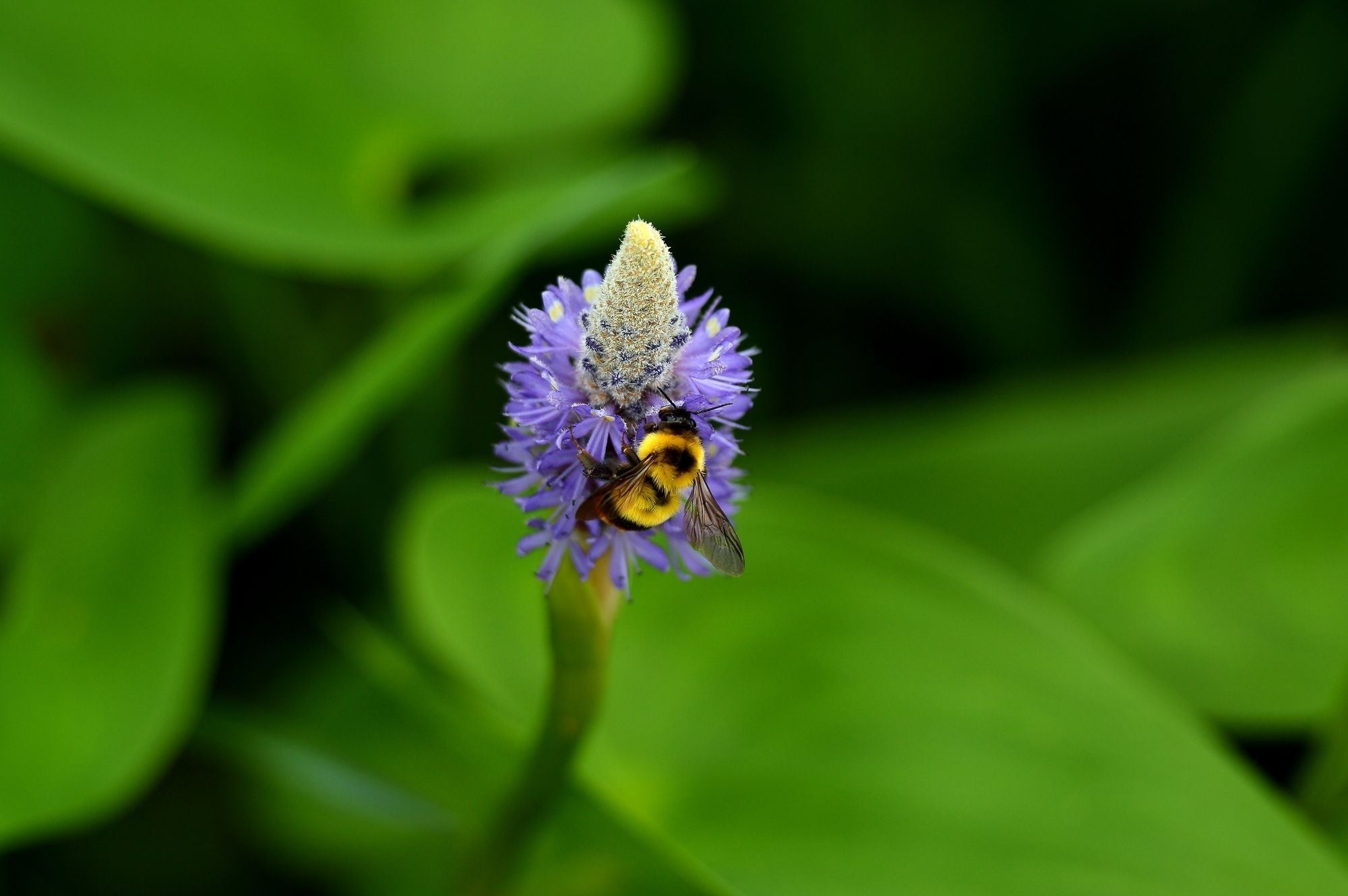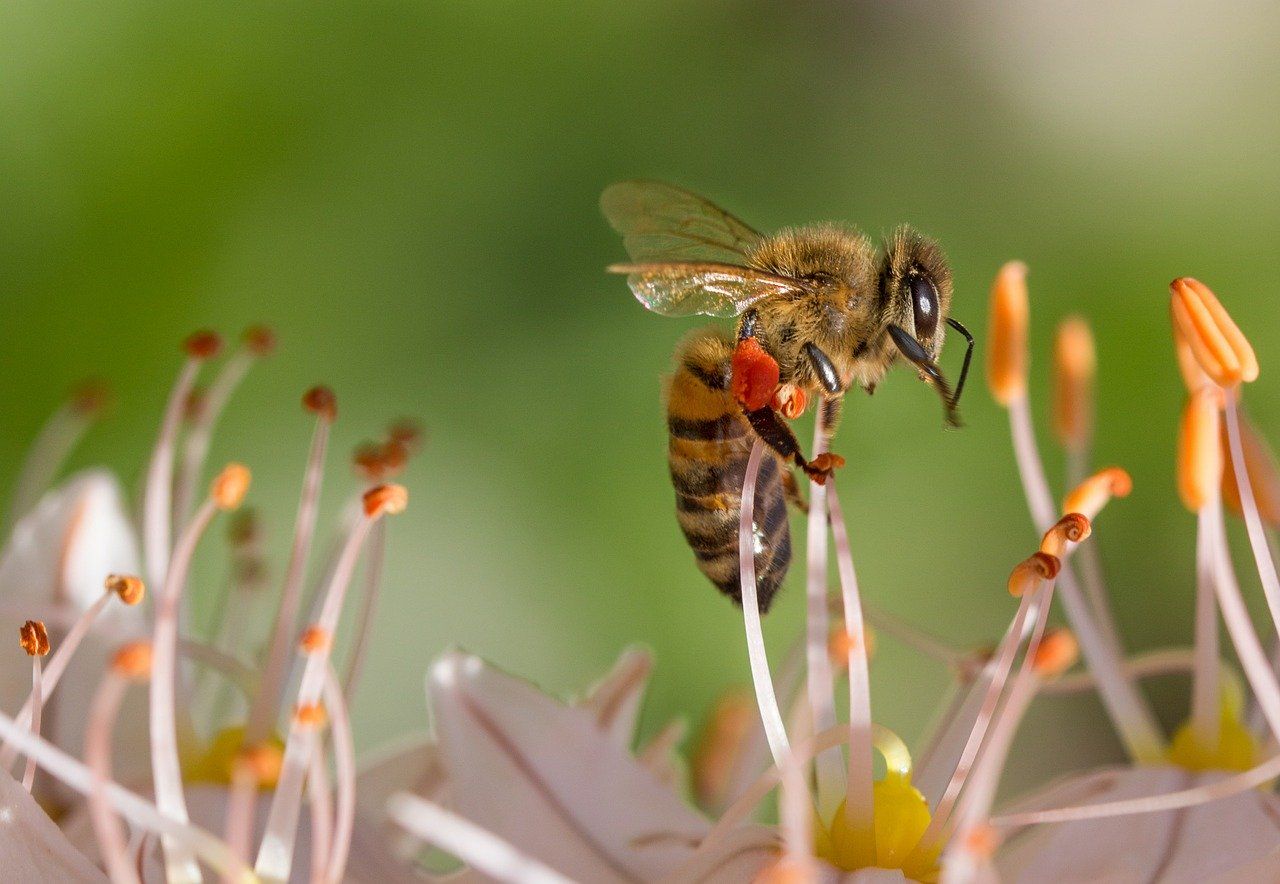How to Create a Bee-Friendly Garden This Spring
- Support local bees by planting seasonally appropriate, pollinator-friendly plants.
- Avoid pesticides to ensure a safe environment for bees to thrive.
- Provide fresh water for bees, especially during warmer months.
- Native plants offer bees the best nutrition and are adapted to local conditions.
Introduction
Bees play a vital role in pollinating plants, helping to sustain ecosystems and boost crop production. Unfortunately, bee populations around the world have been in decline due to factors like habitat loss, pesticides, and disease. In Australia, while we’ve managed to protect most of our native bee species, the detection of varroa mite in NSW and Queensland serves as a reminder of the importance of protecting these valuable pollinators.
Spring 2025 is just around the corner, and now is the ideal time to start planning a bee-friendly garden. Whether you’re working with a suburban backyard, a rural property, or even a few pots on a balcony, there are simple ways you can support local bees and help them thrive.
1. Plant Seasonal, Pollinator-Friendly Flowers
Bees need food year-round, not just during spring. One of the easiest ways to support them is by planting flowers that bloom at different times of the year. Consider native plants like grevillea, callistemon, and wattles for the cooler months. These plants provide bees with valuable nectar when food sources are limited.
Great Seasonal Plants for Bees:
- Spring: Lavender, borage, native daisies, bluebells, clover
- Summer: Sunflowers, cosmos, salvia, grevillea
- Autumn: Marigolds, echinacea, sage
- Winter: Bottlebrush, banksia, wattles
2. Provide Fresh Water
Bees need water to stay hydrated, especially in the warmer months. You can help them by offering a shallow water source such as a birdbath or dish. To make it safer for bees to drink, add pebbles or corks so they have a place to land without risking drowning.
3. Skip the Pesticides
Pesticides can be harmful to bees. If you must treat your garden for pests, choose bee-safe options like pyrethrum. Always apply treatments in the late evening, when bees are less likely to be active. Keep your plants healthy with proper watering and care to avoid the need for pesticides altogether.
4. Add Native Plants and Trees
Native plants are adapted to local conditions and are often the most attractive to native bee species. Adding a variety of native shrubs, groundcovers, and trees can create a rich foraging environment for bees. Small changes, like replacing lawn with flowering groundcovers or planting a native hedge, can make a big difference.
Why It Matters in 2025
In a world where pollinator populations are under threat, every garden, no matter how big or small, can make a difference. A bee-friendly garden supports biodiversity, boosts the health of your garden, and helps protect these essential creatures. As we face ongoing challenges with varroa mite, it’s more important than ever to create safe spaces for bees to thrive.
Quick Checklist to Make Your Garden Bee-Friendly
- Plant a variety of nectar- and pollen-rich flowers
- Use native plants suited to your region
- Provide a shallow water source with safe landing spots
- Avoid or minimise pesticide use
- Include flowering trees, shrubs, and herbs in your garden
- Ensure there are blooms throughout the year
Summary of Key Takeaways
- Plant a range of pollinator-friendly plants that bloom throughout the year.
- Avoid pesticides to protect bees and other beneficial insects.
- Provide fresh water sources and safe landing spots for bees to drink.
- Choose native plants and trees to support local bee species.
- Every effort counts in supporting healthy bee populations and boosting biodiversity.
Ready to Protect Your Hives?

Ecrotek Australia gives you the tools and knowledge you need for effective bee management. From Varroa treatments to hive health essentials, we're here to help you keep your colonies healthy and productive.
Shop Varroa ProductsOr contact our team today for personalised advice on hive health management solutions for your beekeeping operation.


